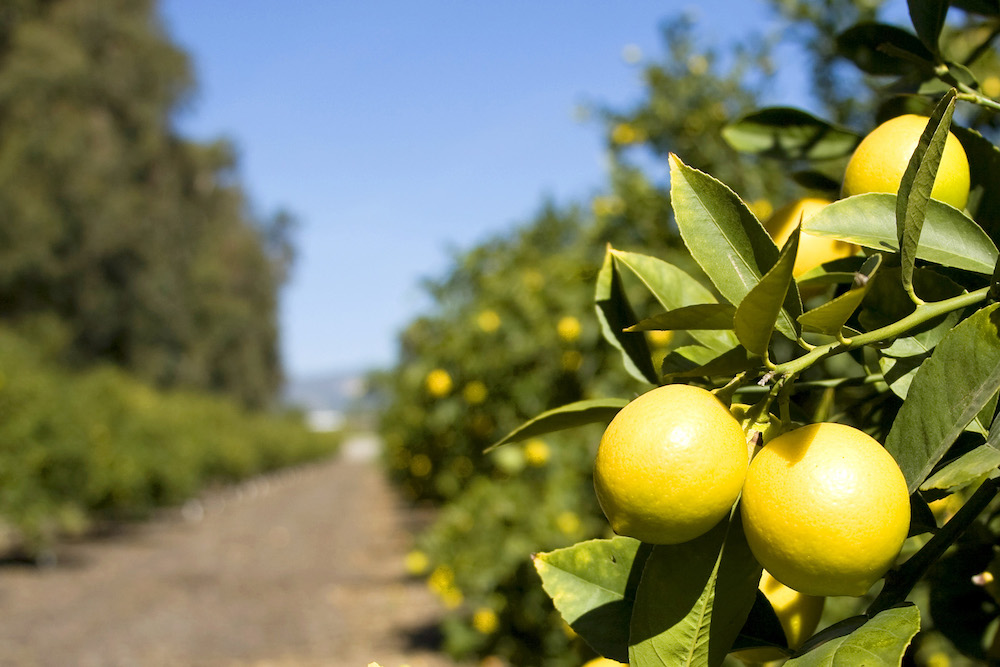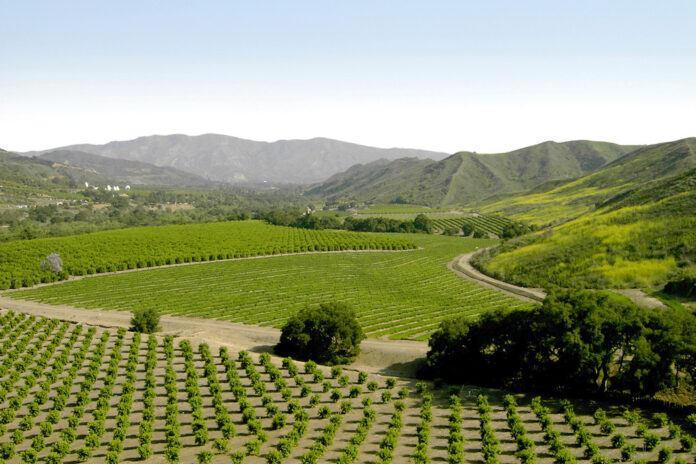Farming operations nestled in the hills of Ventura County accounted for more than $2.1 billion in economic activity last year.
However, the expected return of the infamous El Niño weather pattern this year could drown out some the bounty for the area-leading crops dependent on drier climates, such as avocados and lemons. Farmers are bracing for yet another wet winter, one potentially reaching greater intensity than the record-setting rainfall experienced this past January and February.
That exceedingly wet weather hurt harvesting timelines, and its effects are still being felt throughout the region. Santa Paula-based Limoneira Co., one of the largest citrus growers listed on the New York Stock Exchange with 11,100 acres under management, including 208 in Ventura, highlighted the impact of this year’s heavy rain in its September third-quarter results.
Its “fresh utilization rates” measuring the ratio between its produce picked and total crops grown declined due to disruptions to the blooming season.
“Our third-quarter results were impacted by lower lemon pricing and lower fresh utilization rates as a result of the heavy rains in California throughout December until May,” the company’s president and chief executive, Harold Edwards, said in Limoneira’s earnings report. “(This) delayed a portion of our lemon harvest by two months and led to an industrywide pest issue that lowered the grade on certain fruit.”
Beyond the pests thriving in moist environments, high amounts of rain can waterlog lemon and avocado plants, leading to fungus issues or root rot and forcing farmers to replant trees that take as many as five years to reach maturity.
Ventura County’s avocado crop reached unprecedented valuation last year, according to the county agricultural commissioner’s annual report. The fruit’s popularity, whether spread on toast or made into guacamole, propelled its Ventura-grown value to a record $245 million last year.
Avocados are one of the crops suitable for Southern California’s arid conditions. Both avocado and citrus trees have deep roots able to draw water from sparse winter rainfall, priming the plants for an early-spring bloom.
According to Ventura County Public Works data that tracks rainfall, precipitation totals across the county doubled in the water year that runs between Oct. 1 and Sept. 30.
Limoneira’s Limco Del Mar Ranch saw 200% of normal precipitation with 31.2 inches recorded. East in Simi Valley and around Camarillo, residents saw precipitation levels of 201% and 176% above average, respectively for the same period.
These rain levels were dubbed miraculous by the statet, as California was pushed to the brink for agricultural water allocation amid a prolonged drought. Just two years ago, all 10 cities in Ventura County had reported their lowest rainfall levels on record.
If the National Oceanic and Atmospheric Administration is correct, the coming winter could further the water supply swing.
El Niño briefing
California natives are familiar with its name and farmers have cycled through its reservoir-restoring capabilities, but a “super” El Niño could disrupt infrastructure critical to both crop irrigation and flood protection.
In June, NOAA declared the arrival of El Niño, a climate phenomenon caused by above-average temperatures in the Pacific Ocean that causes higher levels of evaporation and the development of an atmospheric stream of rainstorms in the winter.
According to Scott Bahler, a co-owner and farmer at One Acre Farm LLC in Camarillo, last winter’s already unusually high rain levels affected the harvesting of his blueberries, which he produces between January and May.
“It certainly slowed down the crop, because the (temperature drop) comes in the wintertime, and that’s when our crop comes in,” Bahler said.
Called the “snow chaser variety,” Bahler’s blueberries bloom outside of the summer months, filling consumers’ year-round demand for fruit as most berries bloom in the summer.
‘You pick’ popular

When asked about the threat of El Niño, Bahler said adverse weather conditions could affect the agrotourism business his operation depends on, shortening the window for visitors who pay to pick berries straight off the bush.
Farmers have evolved to become consumer-facing entities, and “you pick” operations charge an entrance fee for customers eager to harvest their own fruits and vegetables.
Moorpark’s Apricot Lane Farms, the subject of the Academy Award-shortlisted documentary “The Biggest Little Farm,” charges $50 for tours of its “regenerative” farming system. Camarillo’s McGrath Family Farm charges $10 for field access to produce, but charges separately for the fruits and vegetables customers take home.
As the pumpkin patch season winds down and fruit trees and bushes enter the active growing phase in advance of spring flowering, NOAA has reinforced its prediction for a “strong” El Niño to occur in the coming season. The agency’s latest forecast calls for a 75-85% chance for Southern California to be hit.
